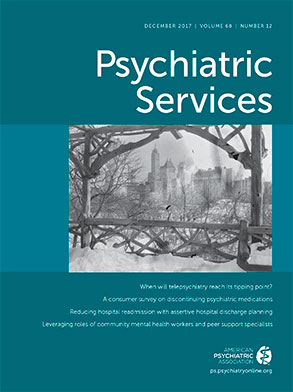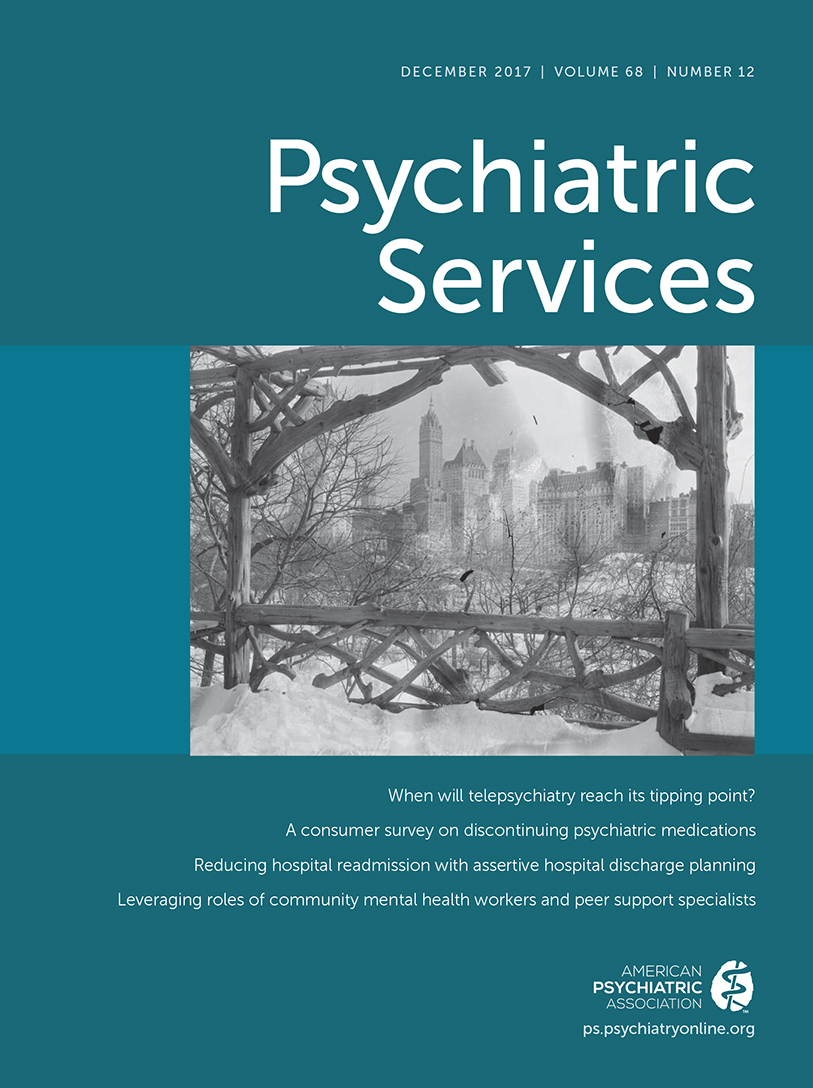In this issue, Wilson and colleagues’ analysis of a large data set of private insurance claims suggests that the answer to the question of whether telepsychiatry has reached its tipping point is a definitive no. Out of almost four million telemental health provider claims over a four-year period (2009–2013), less than 14,000 indicated use of telehealth—a long, long way from tipping! They also found that reimbursement was consistently less for telehealth than for face-to-face services and posit that this significantly limits telehealth utilization.
This surprised me. I first posed the telepsychiatry tipping-point question publicly at a 2002 plenary session of the American Telemedicine Association. I reviewed the evidence showing high levels of patient satisfaction with telepsychiatric services and presented data demonstrating equivalent outcomes between telepsychiatric and in-person services in routine settings. I discussed existing barriers, including reimbursement, and expressed optimism because Medicare had already approved equivalent payment for telemental health services and an additional payment for technical support and other hidden costs. I discussed the impact of telepsychiatry in Iowa’s prisons, in which the number of psychiatric contacts more than quadrupled since its systemwide implementation five years earlier, with essentially the same number of psychiatric providers. I indicated that the technical aspects of delivering telehealth services were rapidly becoming cheaper and would likely continue to do so with expected advances in computer technology. And with the psychiatric workforce shortage already at crisis levels, with broad swaths of the country markedly underserved, I speculated that the tipping point was probably in the not-too-distant future.
If the data in the Wilson et al. study are generalizable, they not only suggest that my prediction was premature but also challenge the notion that telemental health services are expanding at all. This seems counterintuitive and inconsistent with much of what I see. For example, at Iowa's Veterans Affairs (VA) system, telepsychiatry has been the modal method of outpatient service delivery for years, and nationally, the VA has used telemental health services in over a million patient encounters across more than 700 community settings (
www.va.gov/health/newsfeatures/2014/june/connecting-veterans-with-telehealth.asp). New, innovative telepsychiatry-based programs seem to be springing up all around. I visited one last year in Carolina’s Health System. It was serving about 1,000 patients in behavioral health crisis each month across more than 20 community-based emergency rooms out of one central location within the first year of its launch. The American Psychiatric Association currently offers two dozen webinars in its telepsychiatry video library series (
www.psychiatry.org/psychiatrists/practice/telepsychiatry/video-library). These are just a few examples of telepsychiatry’s apparent breadth.
And yet, these claims data suggest telepsychiatry is hardly being used, at least in the private sector. How can one account for this discrepancy?
Here’s one possible answer: Given the ever-expanding gap between supply and demand for psychiatric services, most psychiatrists have more business than they can handle—so why consider telepsychiatry? All things being equal, face-to-face visits are typically preferred. Several state-of-the-art telepsychiatry suites at my medical center sit empty while clinicians are booked for months in face-to-face settings.
From a public health perspective, whether telehealth is “just as good as face to face” is the wrong question. Better questions might be: If you could see a provider who speaks your native language via telehealth versus relying on a translator in a face-to-face setting, which would you choose? If you could see a provider for a half-hour per month via telehealth versus quarterly for 15 minutes face to face, which would you choose? If you could see a provider who specializes in your particular mental health condition via telehealth versus a generalist face to face, which would you choose? But these kinds of questions drive practice only in systems that proactively allocate resources in ways that optimize efficiency and meeting preferences.
As long as we work in systems that are primarily reactive, we will likely continue to practice in the ways that we know and that feel most comfortable, and telepsychiatry suites may continue to sit empty. Something much bigger than psychiatry may have to tip before the telepsychiatry tipping point arrives.

